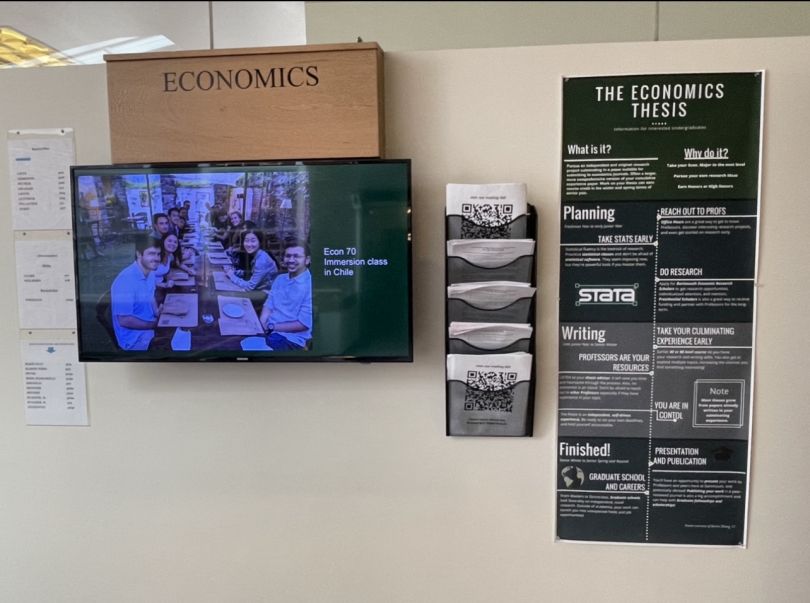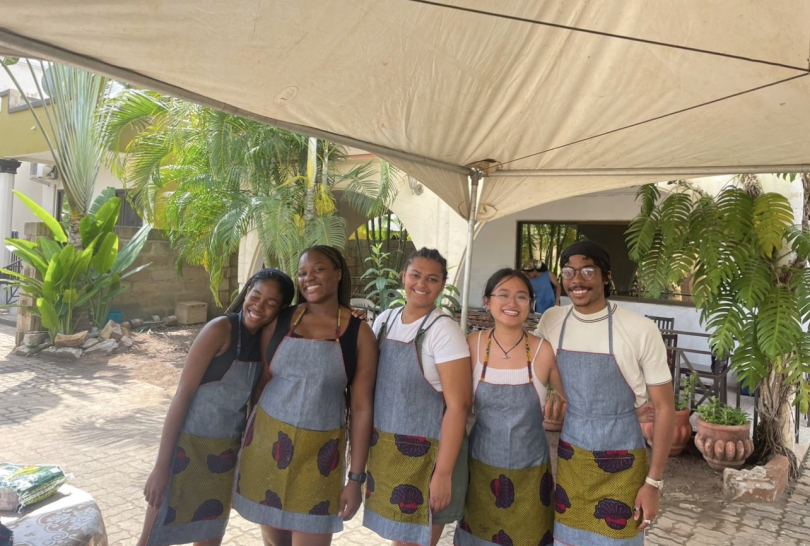
Academic Journeys at Dartmouth
As I'm halfway through my junior year at Dartmouth, I'm paying a lot more attention to completing all my major requirements for my Economics and African and African-American Studies (AAAS) double major. Through my own experiences and hearing about the experiences of some of my friends at Dartmouth, I've realised just how much space Dartmouth's academic system gives students to customise their academic and intellectual journeys while preserving the comprehensiveness, breadth and depth of each academic discipline.
I've been pursuing an economics major since I started at Dartmouth and in this time, have learnt a lot about the economics department and the opportunities it gives students. Being one of the most popular majors at Dartmouth, there are a lot of misconceptions that the economics major plan is very rigid, but I've found that this is not the case! The major does have a lot of requirements, but the department encourages you to select a "track"—development economics, labour economics, international trade, microeconomics, macroeconomics, games and economic behaviour, finance, econometrics—to focus on as your "culminating experience", while also encouraging you to take at least two other upper level courses unrelated to your track of interest. In doing so, students are able to learn the core requirements of the major, specialise in their interests while still leaving room for exploration.

My study abroad experience in Ghana on the AAAS Accra Foreign Study Program (FSP) inspired me to pursue a AAAS major. The AAAS major encourages a lot of academic freedom as long as you fulfil the distributive requirements of social analysis (SOC), systems and traditions of thought, meaning and value (TMV), art creation, performance, history or criticism (ART), the history, criticism or theory of literature (LIT). Dartmouth AAAS majors can also fulfil the culminating experience requirement in many ways: through a senior seminar class, an senior independent research in a topic that interests them or an honours thesis. Through the variety of electives and fields offered by the AAAS, I've been able to intellectualise so many of my experiences as a young African as well as my interests in public service on the continent.

Aside from my specific experiences as an economics and AAAS double major, opportunities like faculty-mentored research, combinations of majors, minors and modified majors, independent studies that count towards your major, curricula that encourage you to explore subfields and unique culminating experiences encourage Dartmouth students to craft their own academic experiences. One of my friends is even creating her own major under the supervision and advice of professors at the intersection of English and Philosophy.


















